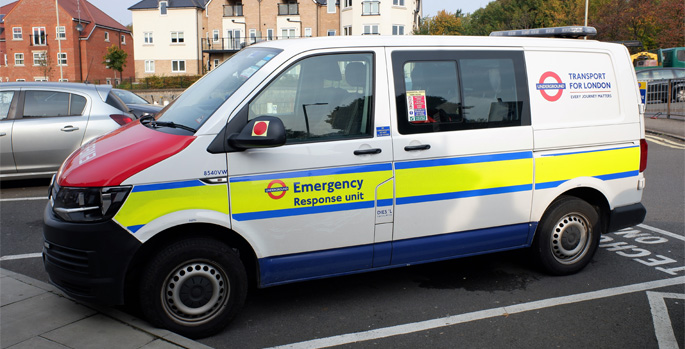Transport for London (TfL)’s emergency response unit (ERU) has had its blue light status revoked, despite the fact it was implemented in the aftermath of the 7/7 attacks in the capital.
A TfL document states the blue light status was withdrawn last year to ‘minimise collision risk’, the BBC reported.
The document also said: ‘BTP [British Transport Police] assessment confirmed incidents where our [ERUs] are deployed do not meet national guidelines on I grade dispatch'.
When approached for comment, BTP's assistant chief constable Sean O'Callaghan said: ‘Our officers work in partnership with TfL in providing Network Incident Response Teams (NIRT). These are police vehicles that are able to respond with blue light capability across the underground area and are crewed with BTP police medics and a London Underground Operational Manager.
'In preparation for the London Olympics in 2012, BTP used converted specialist vehicles for the same purpose of getting TfL engineers to emergency incidents.’
However, he added that ‘as a result of a review in line with the NPCC (National Police Chiefs' Council),’ the service was ‘reconsidered by both partners’.
Claire Mann, TfL's chief operating officer, stated: ‘I want to reassure Londoners that our [ERU] vehicles remain able to respond quickly and safely to any incidents on London's transport network, working in close partnership with other emergency services partners.’
While its blue lights status has been removed, the ERU vehicles will retain the ability to use bus lanes and will not pay the congestion charge.
Implementation
The co-ordinated terrorist attacks on 7 July 2005 killed 52 people and injured more than 770.
In the wake of the attacks, the London Assembly Transport Committee found that the ERU played a ‘crucial role in the emergency response’ to the 7/7 bombings and were ‘experts in dealing with emergencies on and around trains’.
Despite this, the committee was ‘surprised’ that the vehicles did not have blue lights, the automatic right to drive in bus lanes and had to pay the congestion charge.
It recommended that TfL lobby the Government to obtain blue light status for ERU vehicles.
Six years after this recommendation was given, implementation was trialled in 2012. Alan Pacey, then BTP assistant chief constable, said: 'Passenger safety will be improved by using “blue lights” to get engineers and equipment to the scene of incidents as quickly as possible.
‘Stuck trains will be freed from tunnels more quickly, enhancing passenger safety. By getting the line moving sooner there will also be fewer crowd safety issues in and around stations.
'Once at the scene the officer driving the ERU vehicle will perform regular policing duties and work alongside colleagues to resolve any crime or safety issues and help get the system moving again.'
Following this trial, the blue light status was in place until it was revoked last year.
Image credit: Peter_Fleming / Shutterstock.com






